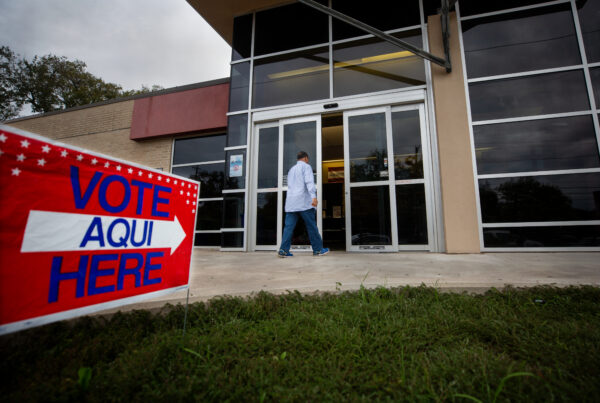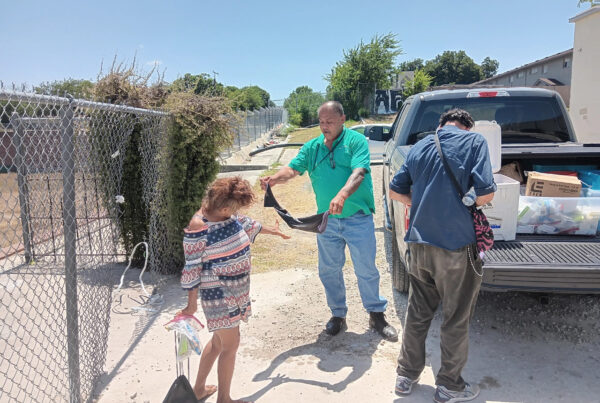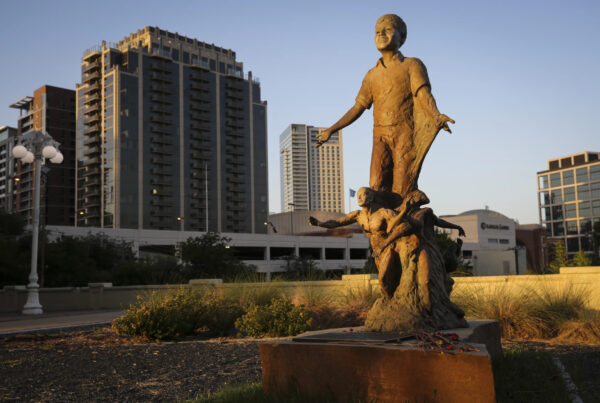The idea of carbon capture and storage is gaining traction as a way to limit emissions that contribute to climate change.
It is a complicated process, but the basic premise is to trap emissions that might otherwise reach the atmosphere, and stow them in nooks and crannies underground. This isn’t a widespread practice yet, but as with many emerging technologies, industry members are keeping a close eye on how carbon storage will be regulated.
That job currently falls to the federal Environmental Protection Agency, or EPA. But the EPA allows states to offer their own regulatory plans, and if approved, state agencies can oversee the industry instead.
Texas has applied to do just that. But recently, Texas Representatives Joaquin Castro and Lloyd Doggett wrote a letter to the EPA recommending that the application be denied – that Texas should not be allowed to manage carbon storage on its own.
Mitchell Ferman, energy reporter for Bloomberg, talked to the Texas Standard about why the congressmen object to the state regulating the industry itself. Listen to the interview above or read the transcript below.
This transcript has been edited lightly for clarity:
Texas Standard: Tell us a bit about what the impetus was behind Congressmen Castro and Doggett writing this letter. Why do they think their home state should not regulate carbon capture on its own?
Mitchell Ferman: Well, the congressmen say that their main concerns are over the Railroad Commission of Texas, which is the state agency that does not regulate railroads. It’s actually in charge of regulating oil and gas.
There have been concerns from Democrats and from environmental folks who have been concerned for years about the railroad commission’s regulatory structure and the way they go about kind of protecting the environment and communities around pollution.
And so, you know, the railroad commission is the agency in Texas that is trying to get primacy from the federal government to regulate this carbon storage process. And so the congressmen raised concerns over over that.
If I understand what you’re saying, there are a lot of critics, including these two congressmen, who believe that the railroad commission is cozy with the oil and gas industry. And that’s sort of the message they’re trying to communicate to the EPA. Am I incorrect there?
Oh, it is incredibly clear that the railroad commission is cozy with the oil and gas industry. They are cheerleaders of the oil and gas industry. That has been clear for many years.
The three regulators who are in charge of the railroad commission, our statewide elected officials and their political campaigns, are largely funded by the oil and gas industry.
And all Republican, we should note. How unusual is it for the EPA to offer states the opportunity to self-regulate like this?
It’s definitely not unusual. I mean, especially in this case. Two states have already gotten approval from the EPA to regulate underground carbon storage – North Dakota and Wyoming. And Louisiana is in this process as well. I mean, it is fairly common.
What has the railroad commission had to say on its behalf?
You know, the railroad commission defends itself and told me in a statement for this story that, you know, their agency’s top priority is ensuring safety and security of Texans and the environment. But the agency also wants to provide what they said was a “predictable regulatory environment” that allows Texas to be the nation’s top producer of energy.
Well, when would we expect the EPA to make a decision on Texas’ application for self-regulation?
Not soon. It will be months, if not well into next year.
You know, it just takes a while. The railroad commission had a public comment period last week. They’ve had various public comment periods where Texans speak up about their concerns or comments or questions.
And Louisiana is further along than Texas. It’s likely that Louisiana – also, of course, a big energy state – they are likely to get a decision from the EPA much sooner because their application process moved along quicker earlier.














